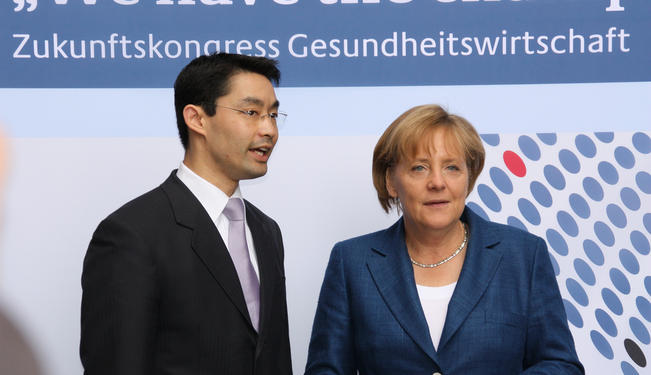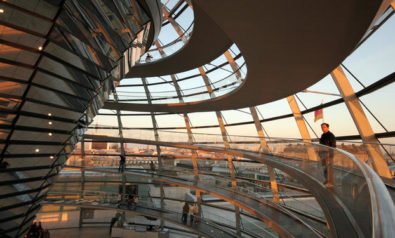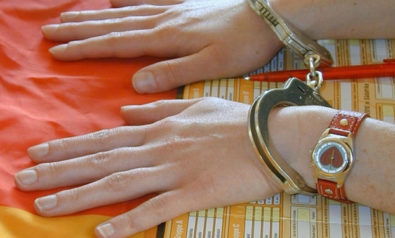German Minister of Economics and Technology, Dr. Philipp Roesler, is confident in Germany’s ability to navigate troubled waters.
Interview conducted by Christian Becker.
Question 1: What is your personal vision for the German economy in 10, 20 and 50 years from now?
Dr. Roesler: We are facing enormous challenges: our society is ageing, the world’s economic balance is shifting, resources are getting scarce and energy production needs to get more environmental friendly while at the same time staying reliable and affordable. The German economy maintains a high level of international competitiveness, involvement and creative potential. Therefore I am confident, that we will master the challenges of the future and will be holding our ground in the global competition even 50 years from now.
Question 2: In order to achieve this vision, what do you think Germany needs to do?
Dr. Roesler: The key task for economic policy in Germany will be to stabilize economic growth and make it sustainable, which means to consistently continue with debt reconstruction. The same applies to the European level, because debt reconstruction and stability in the Eurozone are essential. Sound public finances and stable economic growth go hand in hand. Another crucial point for the future ability of the German economy to compete will be to permanently meet the demand for skilled personnel against the background of demographic change. Our plan to ensure that we have enough skilled personnel aims at increasing the labor participation of women and older people in Germany and to make skilled migration from abroad easier. [Fair Observer: See our series on ageing for more information about this topic]
Additionally we have to strengthen the innovation potential of enterprises further, foster competition and organize the state even more efficiently. It is now particularly urgent to tackle the energy turnaround with courage. Remodeling our energy supply has already been started, starting with phasing out of nuclear energy. What we now need are additional electricity networks and power stations, more energy efficiency, new storage technologies and cost-effective expansion of renewable energies.
Question 3: Many argue the challenge for first world industrial nations is led by emerging economies such as the BRICS countries. What do you see as the nature of the challenge and how do you see Germany preparing for it?
Dr. Roesler: The ongoing integration of the big emerging economies into the global economy has become apparent in economic, political and ecological developments. They are not the “industrial countries’ workbench” anymore, but competitors on equal footing. Rightly they are seen as key actors in the global economic policy, for example in the context of the G-20. The intensifying connection with the emerging economies regarding trade and economy is a huge opportunity for Germany with its export-oriented economy. To make sure that we stay ahead in the technology sector, there needs to be a positive technology-friendly environment for research and innovation in Germany. Potential regarding the export of technology–intensive goods should be tapped in particular, even in markets that are less taken into account at the moment.
Question 4: How much of a boost is Europe to Germany and how much of a drag?
Germany benefits from our common currency, the euro. It’s more stable than the D-Mark, creates transparency and makes prices easier to compare. Europe, with its huge single market and four freedoms (free movement of goods, capital, services, and people), is a huge outlet area to an economically powerful nation such as Germany. Germany is surrounded by other European nations with whom we have a vibrant economic exchange. This exchange works better if it’s based on common rules. Europe as a whole benefits from a well-established framework of rules and so does Germany.
Question 5: Germany has tremendous goodwill in many countries in Asia. What is it doing to tap that goodwill to further economic relations?
Dr. Roesler: Germany has maintained long-lasting and close relationships with many Asian countries. They are the essential base for the already-existing good trade relations German enterprises have with many Asian countries. We see good possibilities for the German economy to get more involved with Asia in the future. Goods and services that carry the “Made in Germany” label have an excellent reputation in Asian countries. With the aspired conclusions of more free trade agreements between the EU and some Asian countries and the realization of ASEAN’s single market in 2015, there are additional opportunities for German enterprises in this region. The German Federal Government supports German companies in the exploitation and consolidation of foreign markets and does that in Asia too: mainly by providing mentoring and assistance through the diplomatic missions abroad, the chambers of foreign trade and the GTAI (Germany Trade and Invest) and also with certain instruments for risk protection and trade promotion. Vice versa, Germany is increasingly seen as an attractive investment location by many Asian companies. Companies from Asia that would like to invest here find good and most of all stable conditions.
Question 6: Germany has always been an industrial country. It prides itself on its ability to make things and make them well. Will we see a de-industrialization of the German economy?
Dr. Roesler: The share of the industry’s contribution to Germany’s Gross National Product has been continuously high for the last 20 years. German industry is very innovative and competitive. It’s diversified and is characterized by a mixture of internationally operating companies and well-positioned medium sized enterprises. Many of these medium sized enterprises are very successful internationally and in some cases they are even world market leaders. A particular high portion of these “hidden champions” can be found in engineering. So I am not worried about the future of our industry – quite the contrary.
The views expressed in this interview are the interviewee's own and do not necessarily reflect Fair Observer’s editorial policy.
Support Fair Observer
We rely on your support for our independence, diversity and quality.
For more than 10 years, Fair Observer has been free, fair and independent. No billionaire owns us, no advertisers control us. We are a reader-supported nonprofit. Unlike many other publications, we keep our content free for readers regardless of where they live or whether they can afford to pay. We have no paywalls and no ads.
In the post-truth era of fake news, echo chambers and filter bubbles, we publish a plurality of perspectives from around the world. Anyone can publish with us, but everyone goes through a rigorous editorial process. So, you get fact-checked, well-reasoned content instead of noise.
We publish 2,500+ voices from 90+ countries. We also conduct education and training programs
on subjects ranging from digital media and journalism to writing and critical thinking. This
doesn’t come cheap. Servers, editors, trainers and web developers cost
money.
Please consider supporting us on a regular basis as a recurring donor or a
sustaining member.
Will you support FO’s journalism?
We rely on your support for our independence, diversity and quality.









Comment